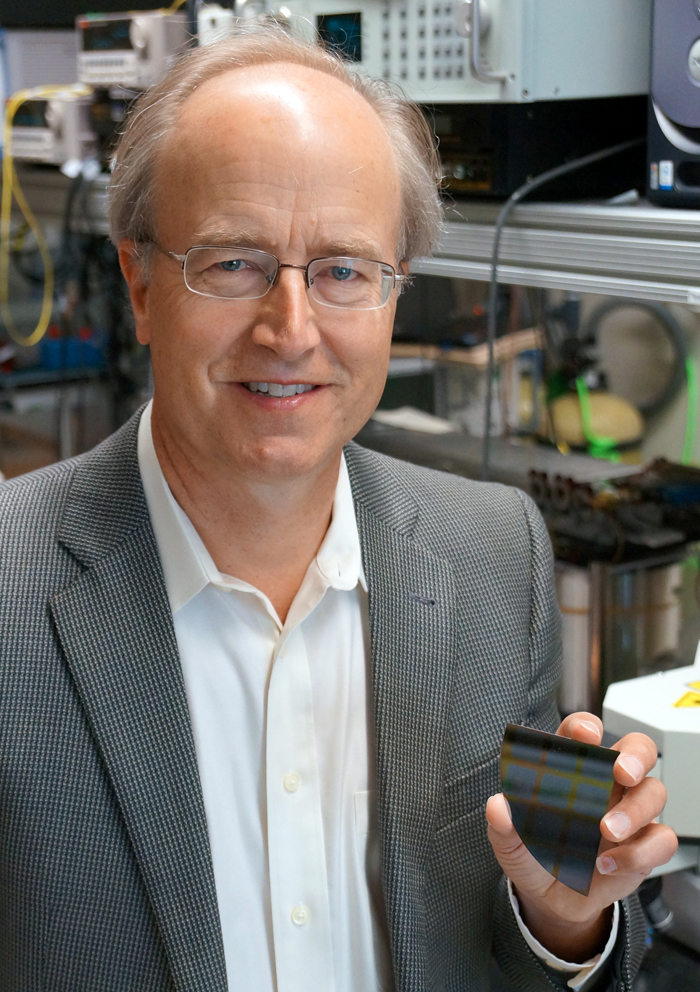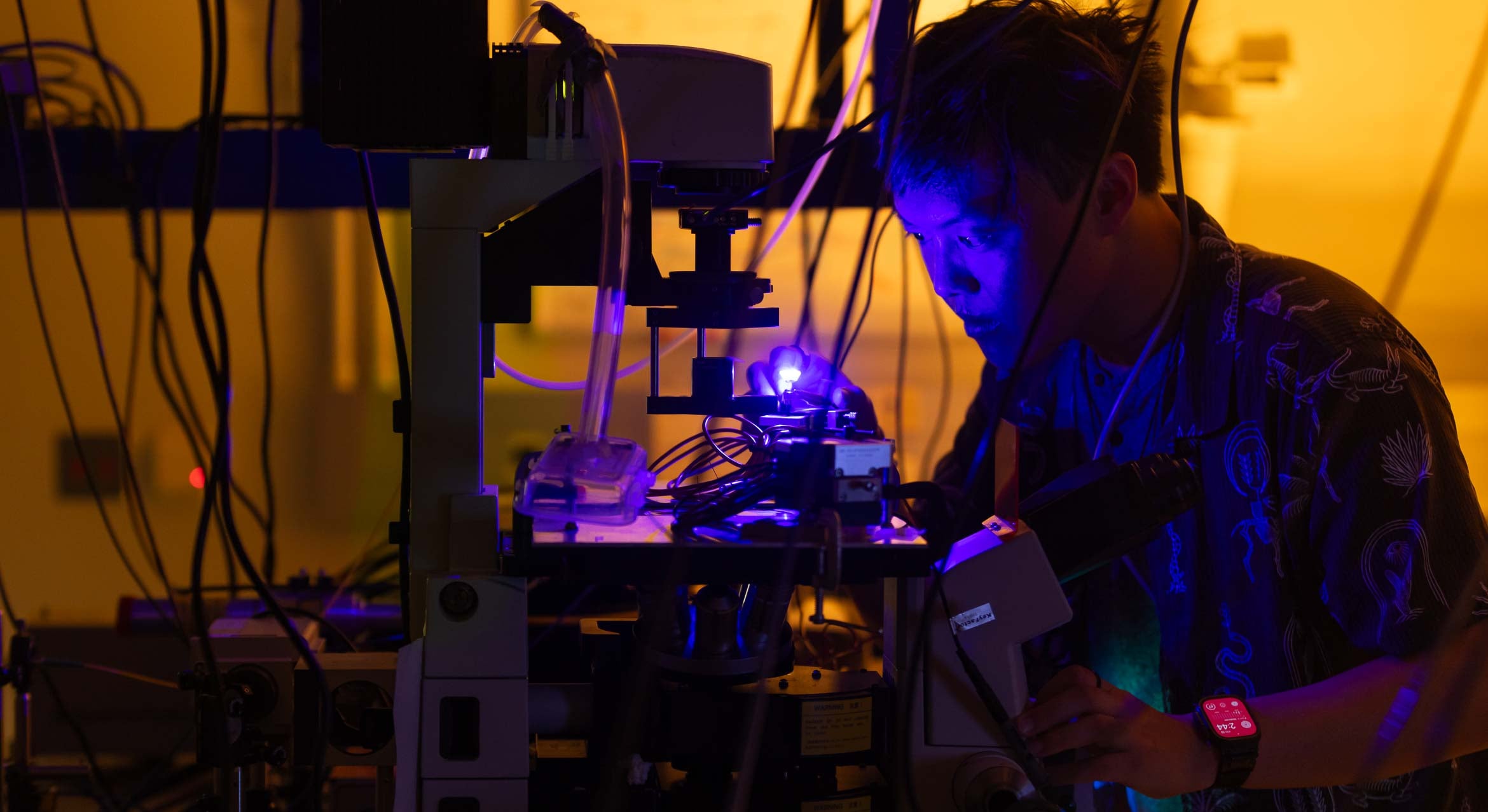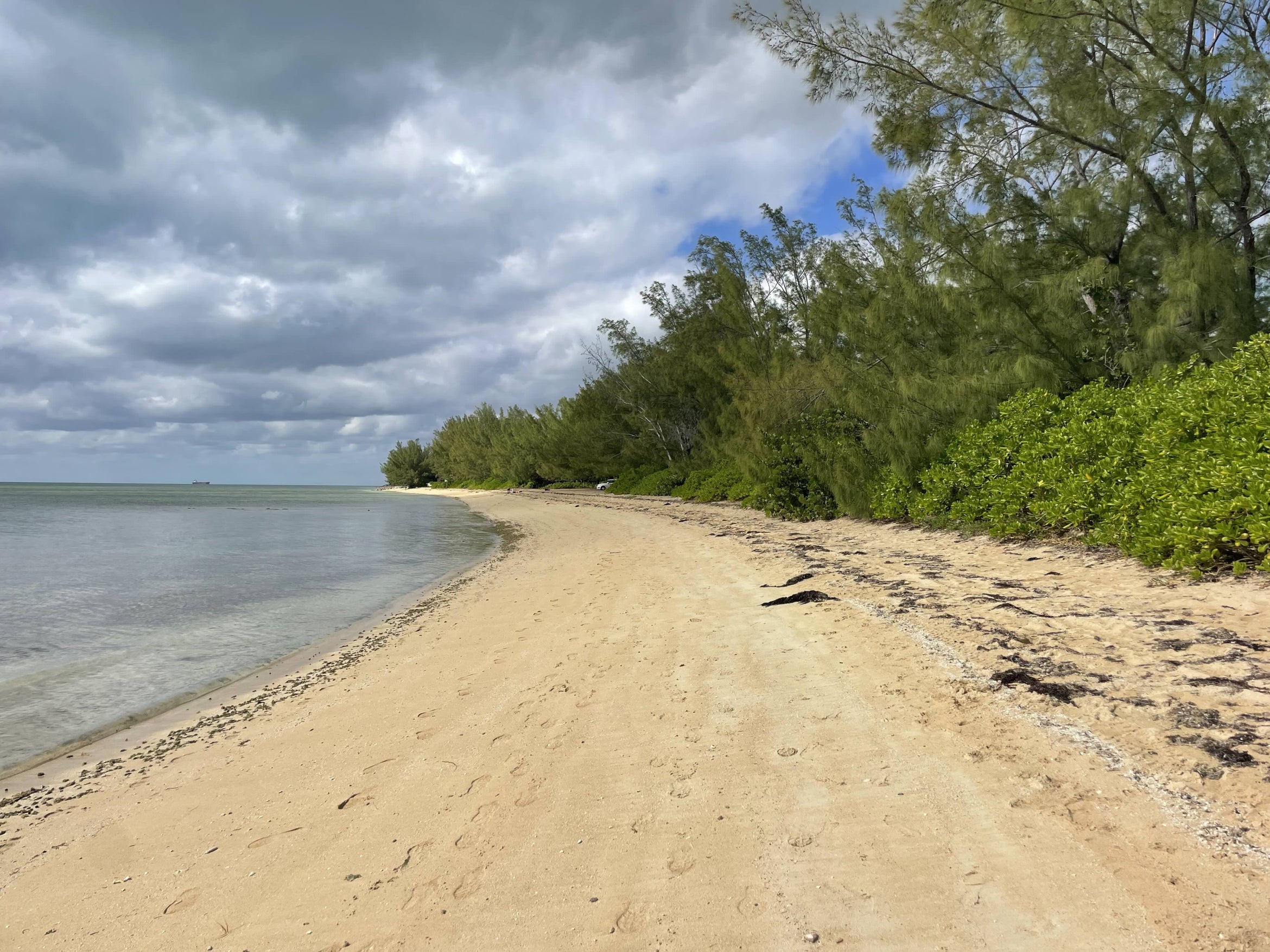
John Bowers, professor of electrical and computer engineering and of materials at UC Santa Barbara, has been named Faculty Research Lecturer for 2013. The award is the highest bestowed by the university on one of its faculty, and Bowers is being recognized for his "groundbreaking scholarship, outstanding research contributions and scientific leadership."
Bowers, who currently holds the university's Fred Kavli Chair in Nanotechnology, and is the director of the campus's Institute for Energy Efficiency, was described by one of his colleagues as "a great teacher, an outstanding public lecturer, a dedicated campus research leader, an accomplished entrepreneur, an effective collaborator, and an inspirational worker for the public good. He is widely knowledgeable, being expert in the fields of electronic devices, device physics, and materials."
"I'm very thrilled and honored to receive it," said Bowers. "Obviously, having your peers select you for the award is phenomenal and very appreciated."
Bowers is the 58th recipient of the Faculty Research Lectureship, since the award's creation in 1955. His lecture, which will take place on campus, will be free and open to the public. The date has not yet been determined.
Considered by his peers to be one of the foremost authorities worldwide in the area of optoelectronics –– the study and manufacture of electronic devices to manipulate light –– Bowers is best known for his work on integrated silicon photonics. His insights have led to advances in the field with the development of a bonding process to produce hybrid silicon lasers, advanced photonic integrated circuits, and hybrid photonic integrated circuits –– a breakthrough that not only solved longstanding problems in the field, but will also pave the way for significant advances in computing, consumer devices, and communication systems.
In the area of high-speed optical components, Bowers developed theories that led to the understanding of performance limits of devices such as semiconductor lasers, modulators, and photodetectors, and he also developed the technology to test and measure their respective bandwidths.
Bowers joined the UCSB faculty in 1987, after working at Bell Laboratories and Honeywell. He received his Ph.D. in applied physics at Stanford University. He has published 17 book chapters, 570 journal papers, 840 conference papers, and has received 53 patents. Bowers has also published 180 invited papers and conference papers, and given 16 plenary talks at conferences. Fifty Ph.D. students have graduated under his primary supervision.
A member of the National Academy of Engineering, Bowers is also a Fellow of the Institute of Electrical and Electronics Engineers (IEEE), the American Physical Society, and the Optical Society of America. He is the director of the United States Department of Energy's Center for Material for Energy Efficient Applications; co-founder of UCSB's Technology Management Program; and co-founder of three Goleta-area companies: Terabit Technology (acquired by Maryland-based Ciena), Calient Networks, and Aurrion.
Bowers is the recipient of numerous awards and honors for his work, including the Tyndall Award in 2012 –– the highest award in the fiber optic field and the Nick Holonyak Award in 2009 from the Optical Society of America. He and his colleagues received the EETimes ACE Award in 2007 for the "Most Promising New Technology", and were included on Discover Magazine's list of the top 100 achievements in 2006. They and also received the PC World Technical Excellence Award in 2006 for the Best Semiconductor Technology.
Bowers is also a founder of the Santa Barbara-based nonprofit Unite to Light, an organization that has been working to provide affordable, clean, and safe solar-powered LED light to communities in developing countries.



